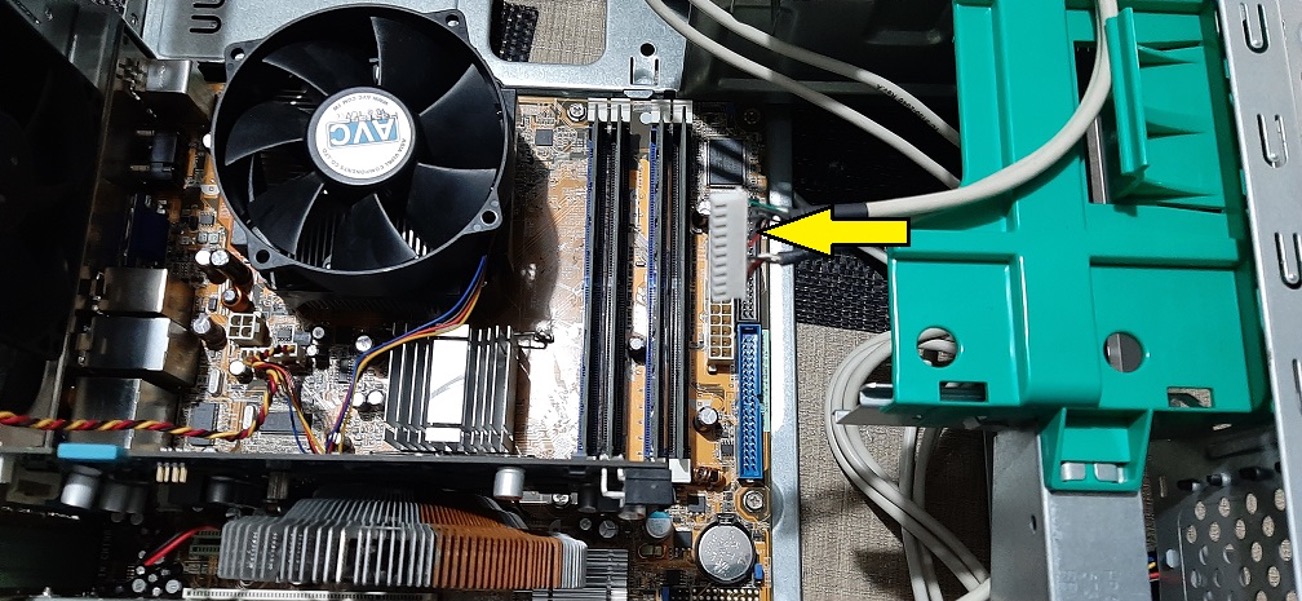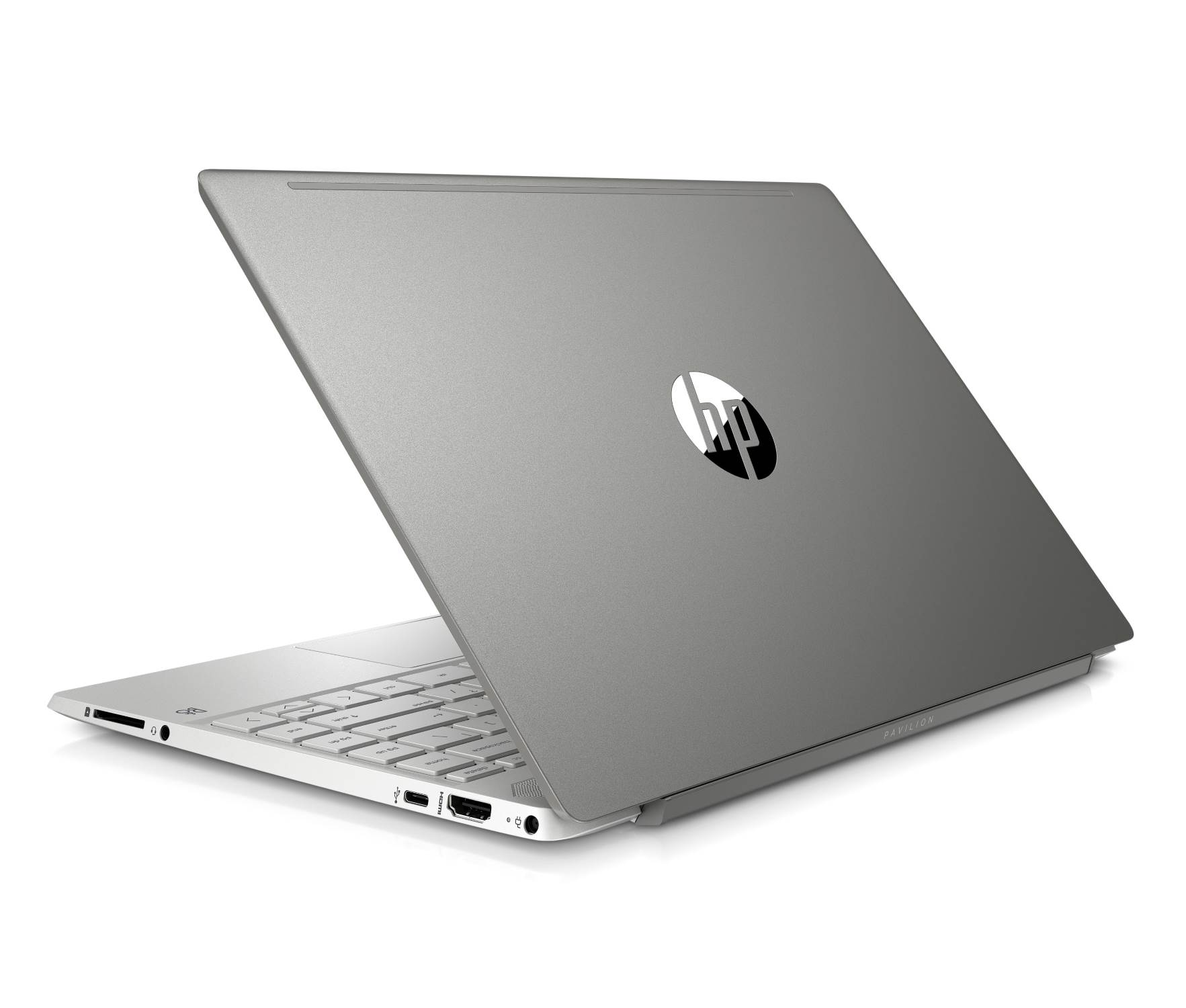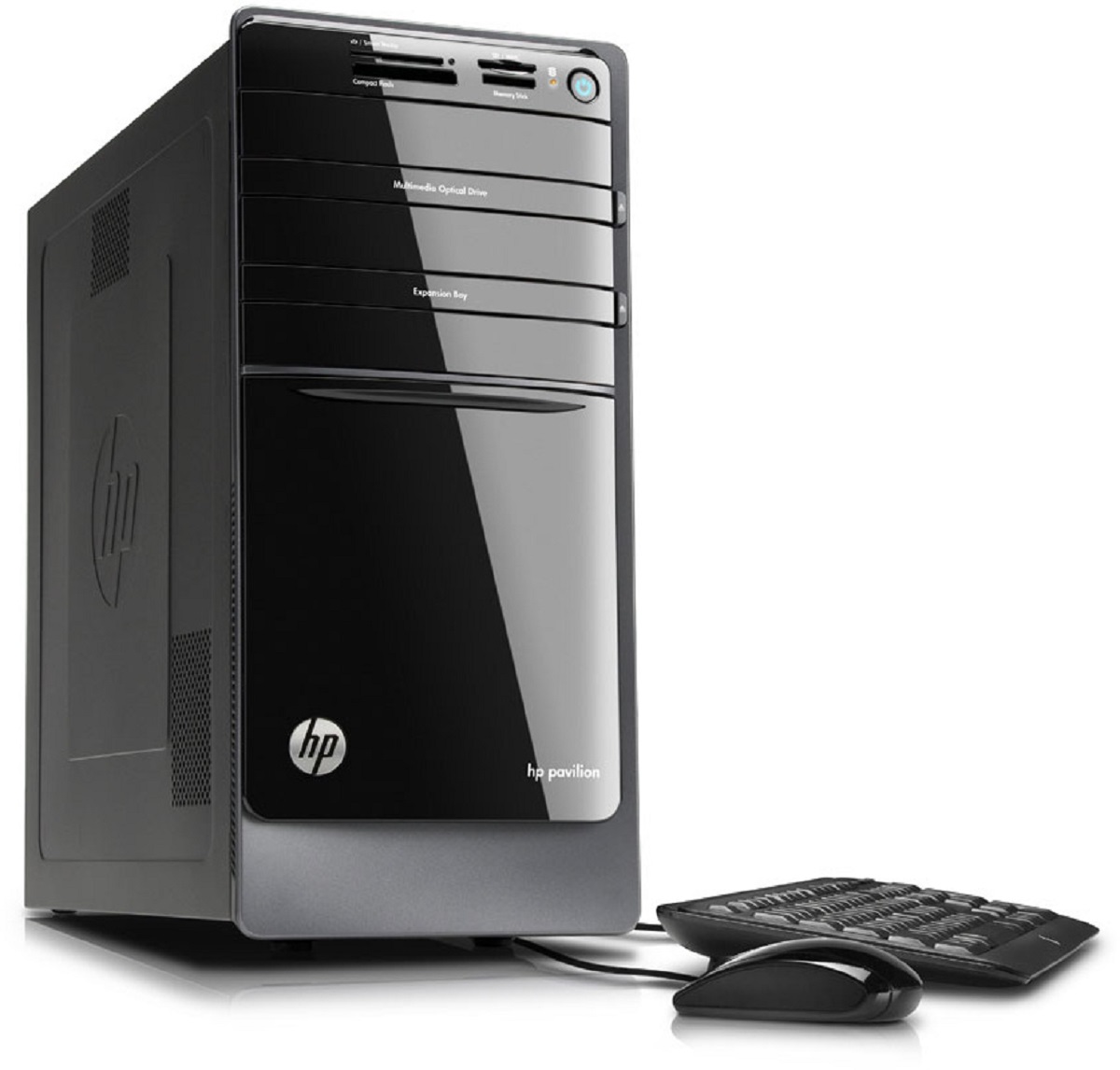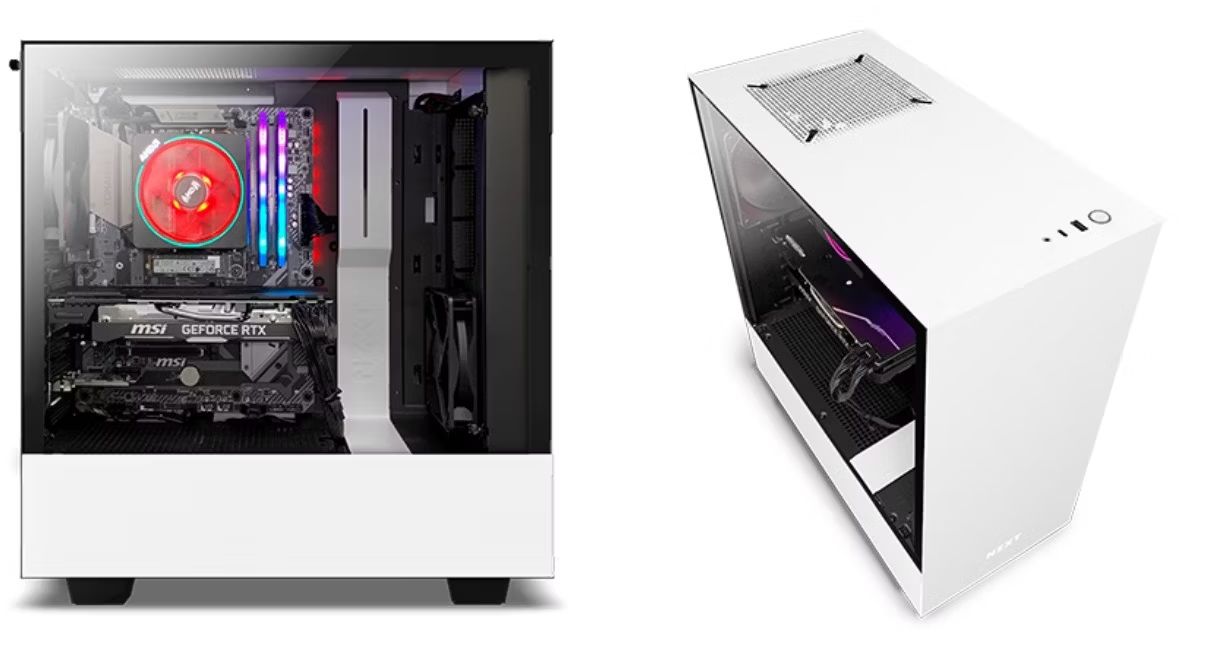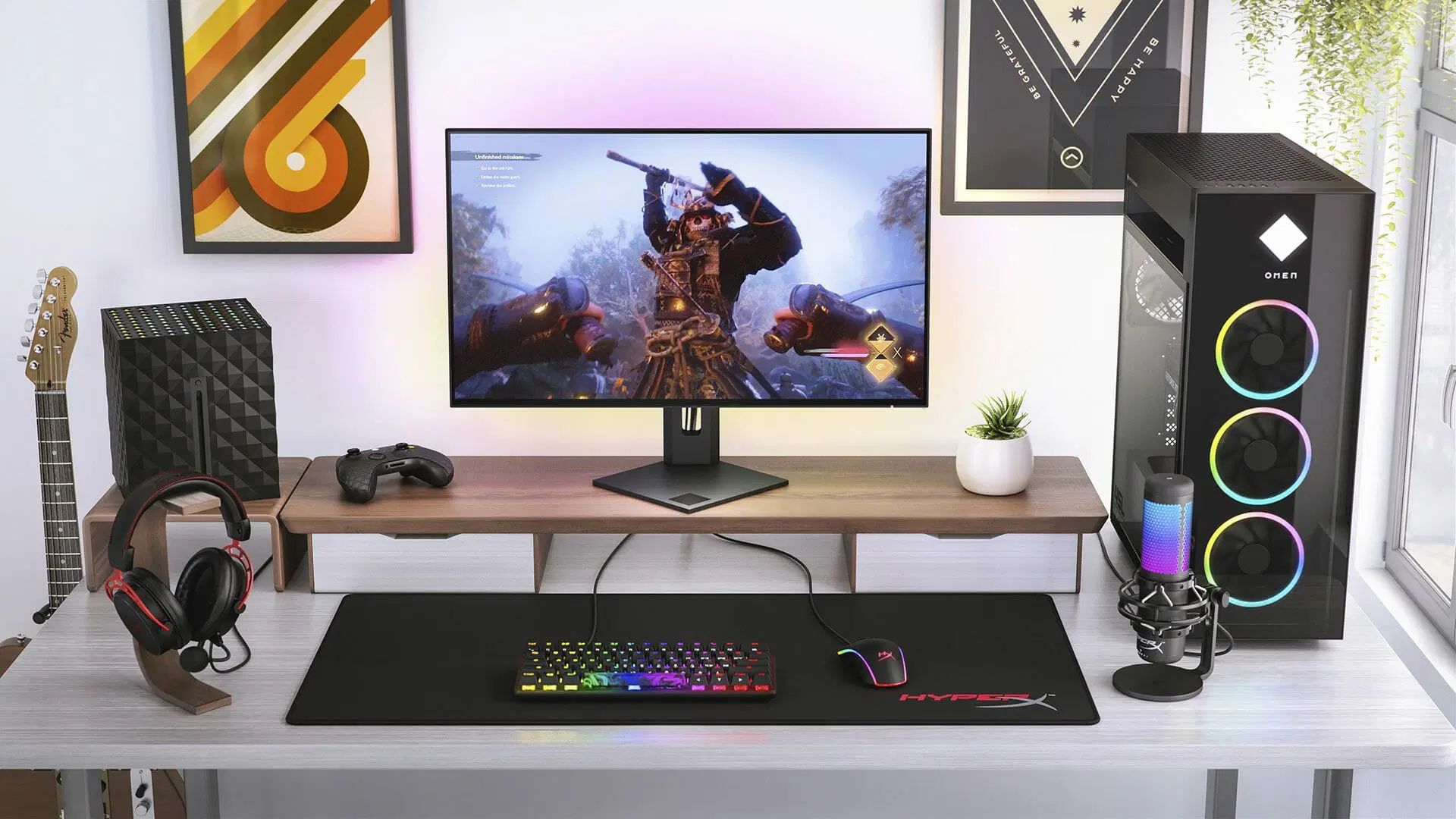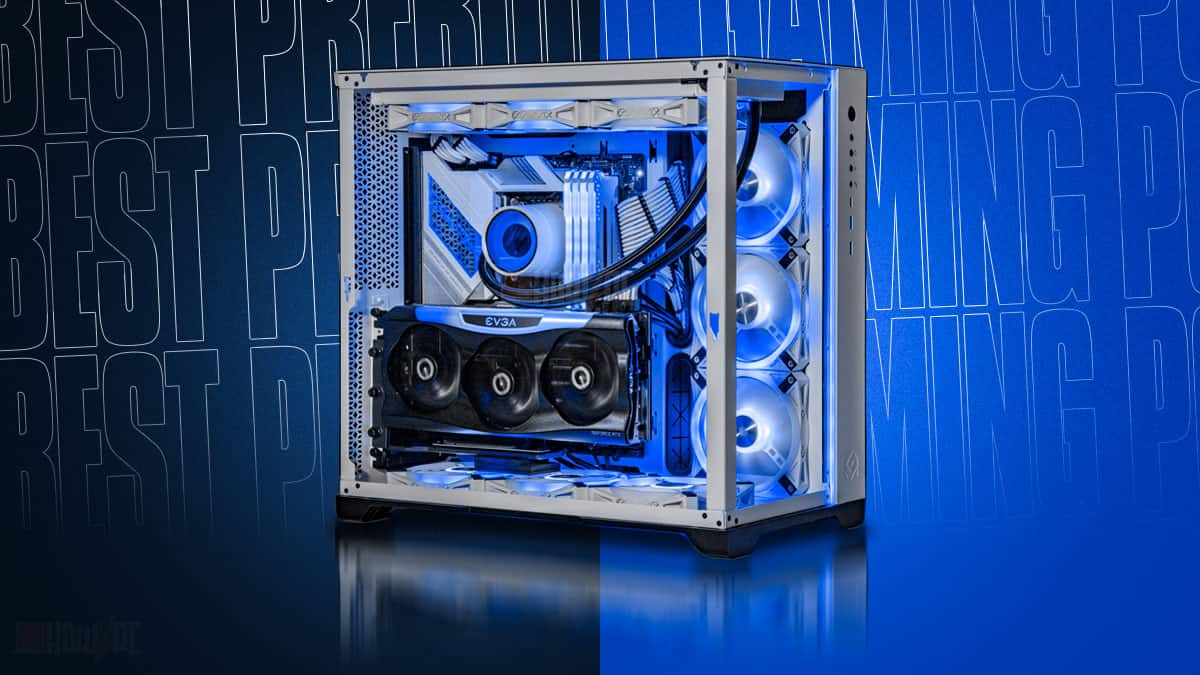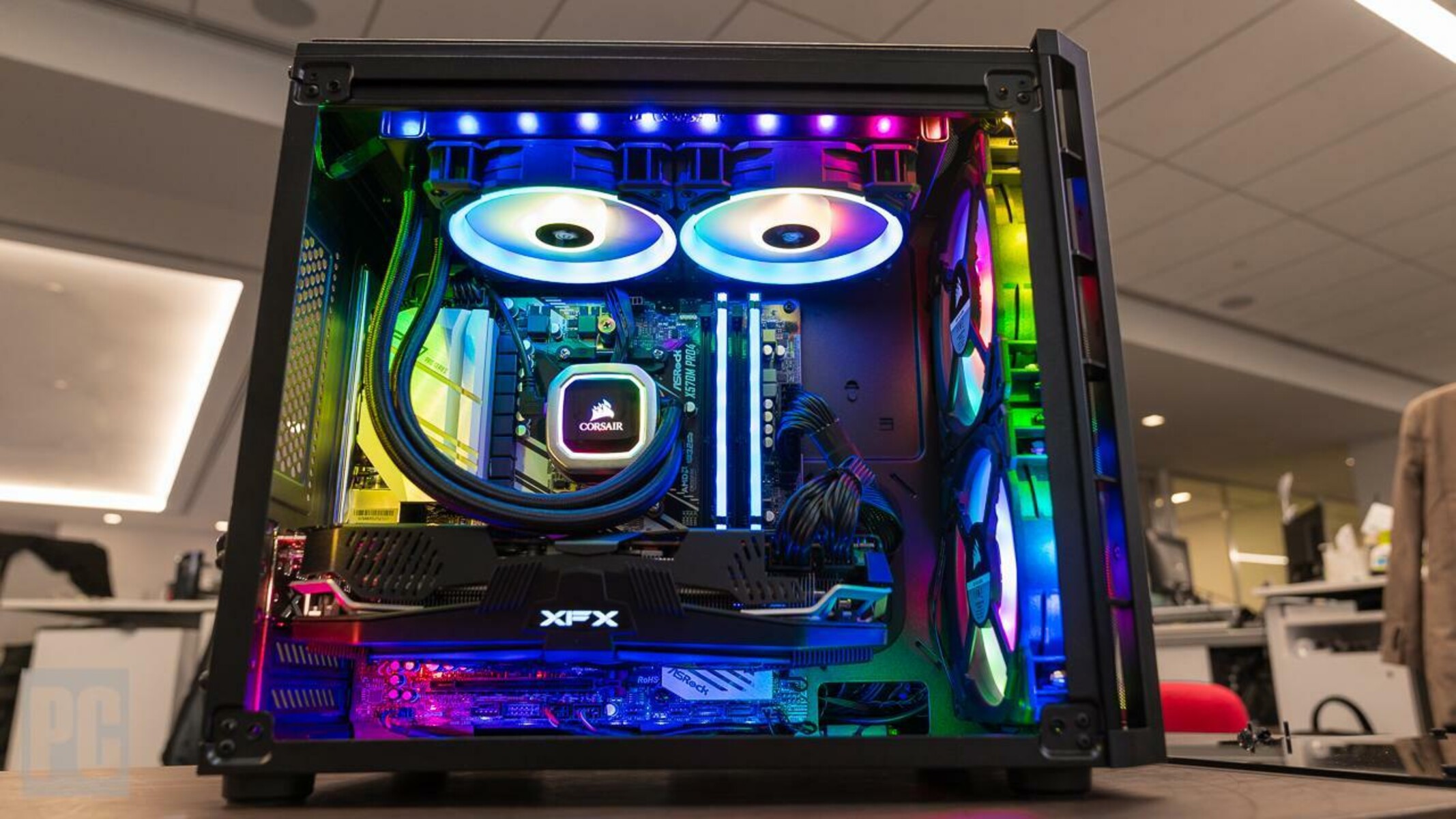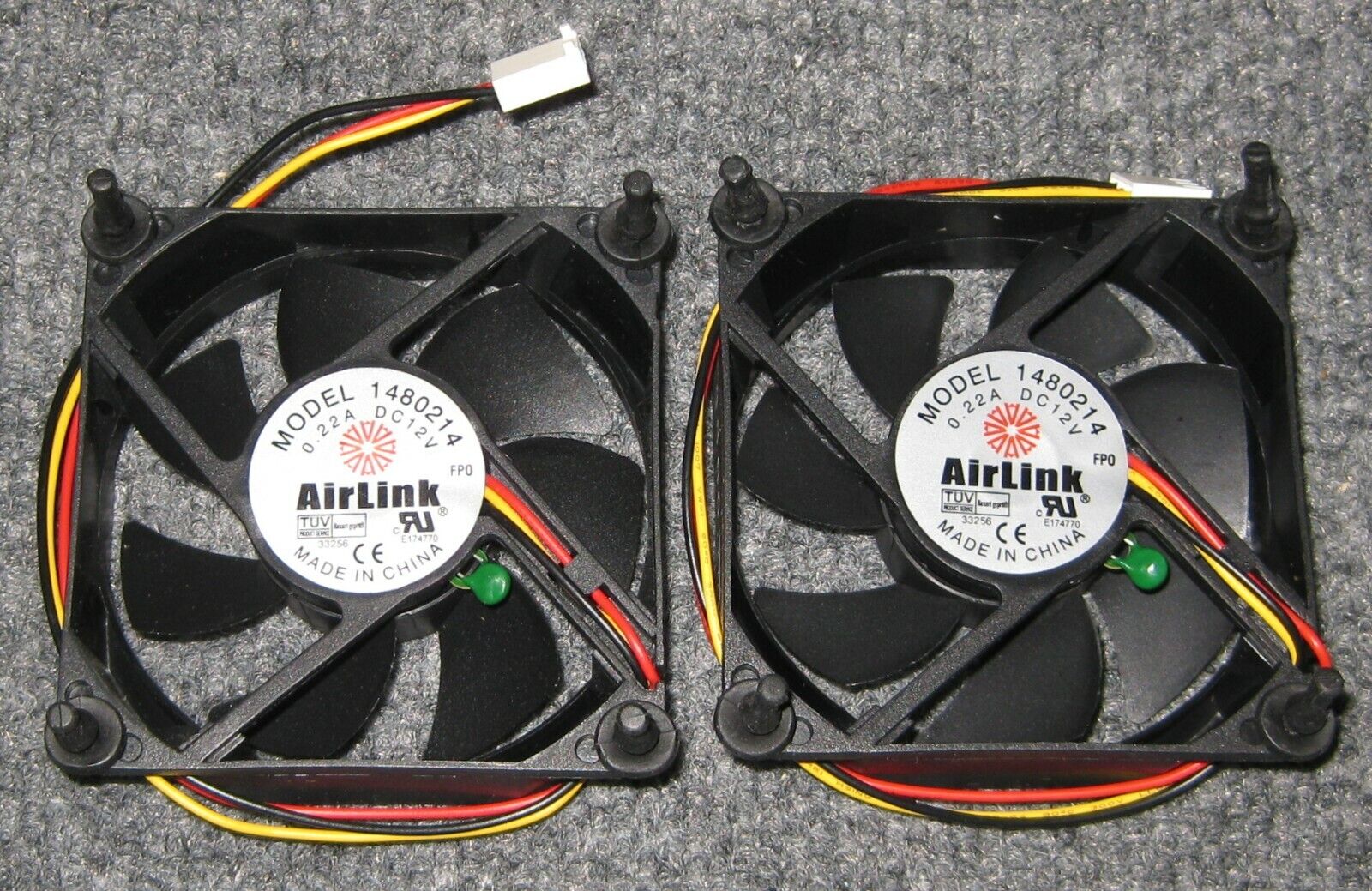Introduction
Welcome to our guide on choosing the right size PC case fan for your HP Pavilion Media Center PC 2007. As a skilled SEO writer, I’m here to provide you with valuable insights and tips to help you make an informed decision.
Being accustomed to the digital age, most of us rely heavily on our computers for various tasks, whether it’s work, entertainment, or both. With all these demanding activities, it’s crucial to keep our computers running at optimal temperatures. This is where PC case fans come into play.
PC case fans are essential components that help regulate the airflow inside your computer case, keeping the internal components cool and preventing overheating. They are designed to circulate air, dissipating heat and maintaining a stable operating temperature.
In this comprehensive guide, we will explore the benefits of PC case fans, factors to consider when choosing one, different sizes available, and other important aspects like cooling performance, noise levels, and power consumption. By the end of this article, you will have a clear understanding of how to select the right PC case fan for your HP Pavilion Media Center PC 2007.
Benefits of PC Case Fans
PC case fans offer numerous benefits to your HP Pavilion Media Center PC 2007. Let’s take a closer look at some of these advantages:
- Improved Cooling: One of the primary benefits of PC case fans is their ability to enhance the cooling performance of your computer. By increasing the airflow inside the case, they help dissipate heat produced by the CPU, GPU, and other components. This prevents overheating and ensures optimal performance, even during resource-intensive tasks like gaming or video editing.
- Extended Component Lifespan: Excessive heat can significantly shorten the lifespan of your computer’s components. PC case fans play a vital role in prolonging the life of your hardware by maintaining lower temperatures. Cooler components experience less wear and tear, resulting in improved reliability and longevity.
- Reduced Noise: While HP Pavilion Media Center PC 2007 already features built-in cooling systems, they can sometimes generate excessive noise, especially under heavy loads. By adding PC case fans, you can distribute the airflow more effectively, reducing the workload on individual fans and consequently lowering the overall noise generated by your system.
- Enhanced System Stability: Overheating can cause your computer to become unstable or even crash. By incorporating PC case fans, you can maintain a consistently cool environment, preventing sudden temperature spikes that can lead to system instability. This ensures smooth operation and minimizes the risk of unexpected shutdowns or data loss.
- Flexible Cooling Solution: PC case fans can be easily installed in various positions within your computer case, allowing you to customize the cooling configuration to suit your needs. Whether you want to improve the overall airflow or target specific hotspots, these fans provide flexibility in optimizing your system’s cooling performance.
These are just a few of the benefits that PC case fans offer to your HP Pavilion Media Center PC 2007. By investing in the right fans, you can effectively keep your system cool, extend its lifespan, reduce noise levels, improve stability, and enjoy a more enjoyable computing experience.
Factors to Consider When Choosing a PC Case Fan
When selecting a PC case fan for your HP Pavilion Media Center PC 2007, there are several factors that you should take into consideration. Let’s explore these factors to ensure you choose the right fan for your needs:
- Airflow and Cooling Performance: The primary purpose of a case fan is to provide sufficient airflow and cooling to your computer components. Consider the fan’s airflow rating, measured in cubic feet per minute (CFM), and its static pressure, which determines its ability to push air through obstacles. Higher CFM and static pressure values generally indicate better cooling performance.
- Noise Levels: Noise can be a significant concern, especially if you prefer a quieter computing experience. Look for PC case fans that offer low noise levels while still providing adequate cooling performance. Pay attention to the fan’s dB(A) rating, as lower values indicate quieter operation.
- Size and Compatibility: PC case fans come in various sizes, such as 80mm, 120mm, and 140mm. Ensure that the fan you choose is compatible with your HP Pavilion Media Center PC 2007’s case and fan mounts. Measure the available space inside your case to determine the maximum fan size that can be accommodated.
- Connectors and Control: Consider the types of connectors that the fan uses. Most PC case fans use either a 3-pin or 4-pin connector. Check if your motherboard has the corresponding header for the fan connector. Additionally, some fans offer control options such as PWM (Pulse Width Modulation) or voltage regulation for adjusting fan speed according to temperature.
- RGB and Aesthetic Options: If you are interested in enhancing the visual appeal of your computer, consider RGB (Red, Green, Blue) fans that offer customizable lighting effects. Some fans even sync with software or support motherboard RGB lighting control. Additionally, choose a design that complements your PC’s aesthetics.
By considering these factors, you can select a PC case fan that meets your cooling performance requirements, noise preferences, compatibility with your HP Pavilion Media Center PC 2007, and aesthetic preferences. Take your time to research and choose wisely to ensure optimal cooling and a satisfactory computing experience.
Size Considerations
When it comes to choosing a PC case fan for your HP Pavilion Media Center PC 2007, size plays a crucial role. The size of the fan determines its compatibility, airflow, and noise levels. Let’s explore some size considerations to keep in mind:
1. Fan Mounts: Firstly, you need to identify the available fan mount locations inside your computer case. Measure the dimensions of these mounts to determine the maximum fan sizes that can be installed. Common sizes include 80mm, 120mm, and 140mm fans. Ensure that the fan you choose fits these mounting locations.
2. Case Space: Consider the available space inside your computer case. Larger fans generally provide greater airflow and can move more air at lower speeds, resulting in quieter operation. However, make sure that there is enough clearance for the larger fan, considering other components like the CPU cooler, RAM modules, and graphics card.
3. Cooling Efficiency: The size of the fan affects its cooling efficiency. Larger fans with larger blades can generate more air movement, providing better cooling performance. However, smaller fans can also be effective in specific areas, such as near the CPU or GPU, where space is limited.
4. Compatibility: It’s important to choose a fan size that is compatible with your HP Pavilion Media Center PC 2007’s case and motherboard. Check the specifications of your case and motherboard to determine the supported fan sizes and connectors. Additionally, consider the number of available fan headers on the motherboard to ensure you have sufficient connections for your chosen fan size.
5. Noise Levels: Smaller fans typically spin at higher speeds to achieve the same airflow as larger fans, resulting in increased noise levels. If noise is a concern, consider larger fans as they can provide effective cooling at lower RPMs, resulting in quieter operation. However, there are also high-quality smaller fans available that offer reduced noise levels thanks to advanced engineering and fan blade designs.
When selecting the size of your PC case fan, carefully assess your requirements, available space, and compatibility. Choose a fan size that offers a balance between airflow, cooling performance, noise levels, and fits seamlessly into your HP Pavilion Media Center PC 2007’s case. By considering these size considerations, you can ensure efficient cooling and optimal performance for your system.
Cooling Performance
The cooling performance of a PC case fan is a critical factor to consider when selecting one for your HP Pavilion Media Center PC 2007. Effective cooling ensures that your components operate at optimal temperatures, preventing overheating and maintaining system stability. Let’s explore some key aspects that affect the cooling performance of PC case fans:
Airflow: The airflow produced by a fan is measured in cubic feet per minute (CFM). Higher CFM values indicate greater airflow, which translates to better cooling. It is important to choose a fan with sufficient airflow to provide adequate cooling for your components. Consider the temperatures your CPU and GPU reach under workload and select a fan that can handle the heat generated.
Static Pressure: Static pressure refers to a fan’s ability to push air through obstacles, such as heatsinks and dust filters. Components like CPU coolers often rely on fans with high static pressure to effectively dissipate heat. When selecting a PC case fan, especially if you have components with dense heatsinks, ensure that you choose a fan with appropriate static pressure for efficient cooling.
Fan Speed: The rotation speed of a fan, measured in revolutions per minute (RPM), affects its cooling performance. Higher RPM fans tend to generate more airflow but can also produce more noise. It’s crucial to strike a balance between cooling performance and noise levels to ensure an optimal cooling solution for your HP Pavilion Media Center PC 2007.
Fan Placement: The placement of your PC case fans also plays a role in cooling performance. By strategically positioning fans, you can create a well-ventilated airflow path within your case. Intake fans bring fresh air into the case, while exhaust fans expel hot air. Additionally, consider directing airflow towards components that tend to generate more heat, such as the CPU and GPU.
Cable Management: Proper cable management can optimize airflow within your case. Ensuring that cables are neatly organized and not obstructing the path of airflow helps to maximize the cooling potential of your PC case fans.
System Monitoring: Monitoring the temperatures of your components through software tools or BIOS can provide valuable insight into the cooling performance of your PC case fans. If you notice consistently high temperatures, it may be an indication that the current cooling setup is inadequate, and adjustments to fan speeds or fan placement may be necessary.
By considering these factors and optimizing the cooling performance of your PC case fans, you can ensure that your HP Pavilion Media Center PC 2007 remains cool and runs smoothly under various workloads. Regularly monitoring temperatures and making necessary adjustments will help maintain the cooling performance of your system for optimal performance and longevity of your components.
Noise Levels
When selecting a PC case fan for your HP Pavilion Media Center PC 2007, considering the noise levels is essential. While cooling performance is crucial, it’s also important to maintain a quiet computing environment. Let’s explore some factors related to noise levels when choosing a PC case fan:
Decibel Level: Noise levels are typically measured in decibels (dB). Lower dB ratings indicate quieter operation. When choosing a fan, look for models that have lower dB ratings to minimize noise output. However, it’s crucial to strike a balance between noise reduction and cooling performance to ensure that your components are adequately cooled.
Fan Speed: The fan speed, measured in revolutions per minute (RPM), directly affects the noise generated. Higher RPM fans tend to produce more noise due to the increased airflow. Consider fans that offer a good balance between cooling performance and noise levels. Fans with variable fan speed control, such as PWM (Pulse Width Modulation) fans, allow you to adjust the RPM and noise levels according to your needs.
Fan Bearing Type: The type of bearing used in the fan affects noise levels. Generally, fans with ball bearings tend to be noisier than those with fluid dynamic bearings (FDB) or magnetic bearings. Fans with FDB or magnetic bearings offer quieter operation, as they reduce friction and minimize noise generated by the fan rotation.
Vibration Dampening: Some PC case fans come with rubber or silicone dampeners to minimize vibrations. These dampeners help reduce the transmission of vibrations from the fan to the case, resulting in quieter operation. Consider fans with built-in vibration dampening features if noise reduction is a priority.
Noise Reduction Accessories: Some fans include additional accessories like fan grills or rubber gaskets to further reduce noise levels. Fan grills protect the blades and also help diffuse airflow, reducing noise. Rubber gaskets can minimize vibrations and the transmission of noise to the case.
Fan Placement: The placement and orientation of fans within your computer case can impact noise levels. Improperly positioned fans may generate more noise due to turbulent airflow or increased resistance. Ensure that fans are mounted securely and aligned properly to minimize noise caused by vibration or unbalanced airflow.
By considering these factors, you can select a PC case fan for your HP Pavilion Media Center PC 2007 that offers a good balance between cooling performance and noise reduction. Remember to prioritize your specific requirements and preferences. A quieter computing experience can significantly enhance your overall satisfaction and immersion while using your computer.
Power Consumption
When choosing a PC case fan for your HP Pavilion Media Center PC 2007, it’s important to consider the power consumption of the fan. Power consumption not only impacts energy efficiency but also affects the overall performance and temperature regulation of your system. Let’s explore some key points to consider regarding power consumption:
Wattage: The wattage rating of a fan indicates the amount of power it consumes during operation. Higher wattage fans require more power to operate, which can impact your system’s overall power consumption. It’s important to ensure that your power supply can handle the total power draw of your PC case fans, along with other components.
Efficiency: Fans with higher efficiency can provide the same or better cooling performance while consuming less power. Look for fans that are designed to optimize airflow and cooling performance while minimizing the power required for operation. This helps in reducing energy usage and can contribute to a more eco-friendly and cost-effective computing setup.
Fan Speed Control: Fans with variable speed control, such as PWM (Pulse Width Modulation) fans, allow you to adjust the fan speed according to your needs. By reducing the fan speed when the system is not under heavy load, you can save power and reduce noise levels. Additionally, some motherboards and software utilities provide fan control options that allow you to optimize power consumption while maintaining adequate cooling.
Fan Type: Different types of fans, such as sleeve bearing, ball bearing, or fluid dynamic bearing (FDB), have varying power consumption. Fans with more advanced bearing technologies, such as FDB, often provide improved cooling efficiency while consuming less power compared to traditional sleeve bearing fans. Consider fans with efficient bearing types to optimize power consumption.
Number of Fans: The number of fans you install in your system can impact power consumption. Increasing the number of fans will generally increase power usage. It’s important to strike a balance between cooling requirements and power efficiency. Evaluate the cooling needs of your components and consider the optimal number and placement of fans to achieve the desired balance.
By considering the power consumption of PC case fans, you can ensure that your HP Pavilion Media Center PC 2007 operates efficiently and effectively. Choosing fans with an appropriate wattage, high efficiency, and fan speed control options can help reduce power usage while maintaining optimal cooling performance. It’s important to evaluate your specific requirements and balance power efficiency with your cooling needs to achieve an optimal and sustainable computing setup.
Types of PC Case Fans
When searching for a PC case fan for your HP Pavilion Media Center PC 2007, it’s important to understand the different types available. Each type offers unique features and advantages. Let’s explore some common types of PC case fans:
1. Sleeve Bearing Fans: Sleeve bearing fans are the most affordable option available. They feature a sleeve that reduces friction between the fan shaft and bearing. While they offer decent cooling performance, they tend to have shorter lifespans and can be noisier compared to other types of fans.
2. Ball Bearing Fans: Ball bearing fans are more durable and have longer lifespans compared to sleeve bearing fans. They use small metal balls to reduce friction, resulting in smoother rotation. Ball bearing fans are known for their reliability and can provide better noise control compared to sleeve bearing fans. However, they can be slightly more expensive.
3. Fluid Dynamic Bearing (FDB) Fans: FDB fans are designed to reduce friction and provide quiet operation. They use a layer of fluid between the shaft and bearing to minimize noise and increase fan life. FDB fans offer excellent cooling performance, improved fan lifespan, and lower noise levels compared to sleeve or ball bearing fans. However, they may be slightly more expensive than other options.
4. Magnetic Levitation (ML) Fans: ML fans use magnetic levitation to suspend the fan rotor, resulting in almost no friction or noise. They provide exceptional cooling performance, higher fan speeds, and longer lifespan compared to traditional bearing types. ML fans, however, are generally more expensive than other options, making them a premium choice for users seeking top-notch performance and silent operation.
5. PWM (Pulse Width Modulation) Fans: PWM fans offer advanced speed control options. They can adjust fan speed dynamically according to temperature fluctuations, providing optimal cooling performance while minimizing noise levels. These fans use the pulse width modulation technique to control fan speed. PWM fans typically have 4-pin connectors and can be controlled through the motherboard or specialized fan control software.
6. RGB Fans: RGB fans offer customizable lighting effects to enhance the visual appeal of your computer. These fans come with built-in RGB LEDs that can be controlled through software or motherboard RGB lighting controls. They provide the same cooling performance as other fan types while adding a vibrant and eye-catching element to your PC case.
Consider your requirements, budget, and priorities when choosing the type of PC case fan for your HP Pavilion Media Center PC 2007. Each fan type has its strengths and weaknesses, so research and evaluate them based on factors such as cooling performance, noise levels, durability, and aesthetics.
Conclusion
In conclusion, choosing the right PC case fan for your HP Pavilion Media Center PC 2007 is crucial for maintaining optimal cooling and performance. By considering factors such as airflow, noise levels, power consumption, size compatibility, and fan type, you can make an informed decision that meets your specific needs.
PC case fans offer numerous benefits, including improved cooling, extended component lifespan, reduced noise levels, enhanced system stability, and flexibility in cooling options. By effectively managing temperature regulation, you can maximize the lifespan and reliability of your components, ensuring smooth operation even during intensive tasks.
When selecting a PC case fan, be mindful of its size compatibility with your case and available fan mounts. Consider the cooling efficiency, noise levels, and power consumption to strike the right balance for your system. Additionally, explore different fan types such as sleeve bearing, ball bearing, fluid dynamic bearing, magnetic levitation, PWM, and RGB fans to find the option that suits your preferences and requirements.
Remember to monitor and adjust fan speeds as needed, enhancing cooling performance while minimizing noise levels and power consumption. Proper fan placement, cable management, and system monitoring play vital roles in optimizing airflow and ensuring efficient cooling.
By carefully considering and selecting the right PC case fan for your HP Pavilion Media Center PC 2007, you can maintain lower temperatures, extend the lifespan of your components, reduce noise, and ensure the overall stability and performance of your system.
Take the time to research and choose wisely, considering your specific needs and budget. With the right PC case fan, you can enjoy a cooler, quieter, and more reliable computing experience for years to come.







